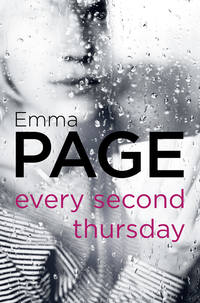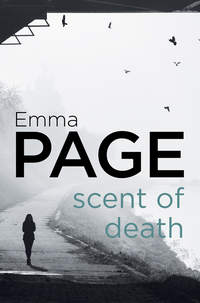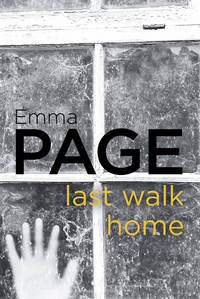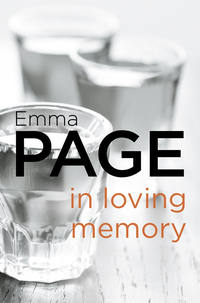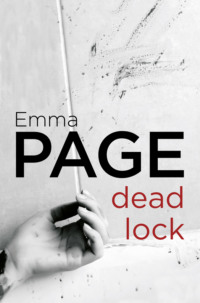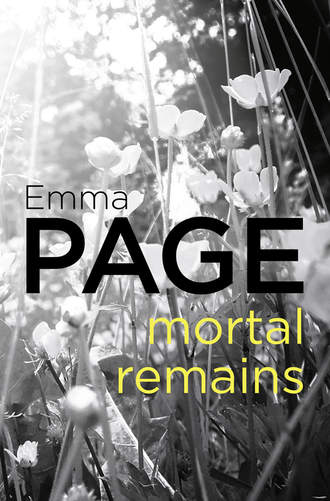
Полная версия
Mortal Remains


COPYRIGHT
Harper An imprint of HarperCollinsPublishers 1 London Bridge Street London SE1 9GF
www.harpercollins.co.uk
First published in Great Britain in 1992 by Collins Crime
Copyright © Emma Page 1992
Emma Page asserts the moral right to be identified as the author of this work
A catalogue copy of this book is available from the British Library.
This novel is entirely a work of fiction. The names, characters and incidents portrayed in it are the work of the author’s imagination. Any resemblance to actual persons, living or dead, events or localities is entirely coincidental.
All rights reserved under International and Pan-American Copyright Conventions. By payment of the required fees, you have been granted the nonexclusive, nontransferable right to access and read the text of this e-book on-screen. No part of this text may be reproduced, transmitted, downloaded, decompiled, reverse-engineered, or stored in or introduced into any information storage and retrieval system, in any form or by any means, whether electronic or mechanical, now known or hereinafter invented, without the express written permission of HarperCollins e-books.
HarperCollinsPublishers has made every reasonable effort to ensure that any picture content and written content in this ebook has been included or removed in accordance with the contractual and technological constraints in operation at the time of publication.
Source ISBN: 9780008171780
Ebook Edition © MARCH 2016 ISBN: 9780008171797
Version [2016-02-19]
DEDICATION
For B.D., G.G., J.C., et al,
For all the happy hours
CONTENTS
Cover
Title Page
Copyright
Dedication
Chapter 1
Chapter 2
Chapter 3
Chapter 4
Chapter 5
Chapter 6
Chapter 7
Chapter 8
Chapter 9
Chapter 10
Chapter 11
Chapter 12
Chapter 13
Chapter 14
Chapter 15
Chapter 16
Chapter 17
Chapter 18
Chapter 19
Chapter 20
Chapter 21
Chapter 22
Chapter 23
Chapter 24
Chapter 25
Chapter 26
Chapter 27
Chapter 28
Chapter 29
About the Author
By Emma Page
About the Publisher
CHAPTER 1
All summer long the local children played on Whitethorn Common, a sizeable tract of land on the edge of Cannonbridge. The common didn’t present a flat, exposed terrain but a landscape of diversity and unexpectedness, swelling into hillocks, dipping into hollows; secluded spots, open spaces, trees and shrubs, smooth stretches of turf.
Now, in the caressing warmth of this golden Tuesday evening in September, the shadows had lengthened by eight o’clock. The blackberrying youngsters were departing with their pickings, the pensioners heading for home and television.
A young couple still strolled over the emerald slopes, their arms around each other. The girl, Jill Lingard, was nineteen years old, pretty enough in an everyday fashion, an air of robust common sense. Her boyfriend, Norman Griffin, seven years older, was a virile-looking young man with a stubborn set to his jaw.
They paused from time to time to survey one or other of the half-dozen houses, of varying sizes, dates and styles, dotted about the common, each in its own garden. They climbed a grass-covered eminence and stood looking down. ‘That’s the kind of house I’d like one day.’ Jill nodded in the direction of a substantial late-Victorian dwelling standing on gently rising ground a little distance ahead. The name on one of the tall gate pillars read: Fairbourne.
The house fronted the common, its large garden screened on three sides and a good part of the fourth by trees and shrubs.
‘That’s the sort of place to bring a family up,’ Jill added. ‘It’s got character. And space.’
‘We could never afford anything like that on what I earn,’ Norman said. He was a driver for Mansell’s, a local building firm. ‘There’s only one way it might be possible and that would take luck and years of hard work. Start off small and trade up. Find some run-down property dirt-cheap, work on it, sell it. Find another, work on it, sell it. The same again. And again. The real difficulty would be getting the money to buy the first property. We’d be lucky to get any mortgage at all on something like that. And we’d need cash for materials, all the way along.’
She looked earnestly up at him. ‘If we did find an old place cheap, do you think Tom Mansell might lend us the money to buy it?’ Tom Mansell was his boss. ‘You’ve always got on well with him. We’d pay him back every month, exactly the same as a building society, we’d have it all properly drawn up.’
He shook his head. ‘Mansell would never put up good money for us to buy some clapped-out property, he’d tell us to buy one of his starter homes. That would make a lot more sense. We could get the maximum mortgage on one of those, with both of us working.’
She pulled a face. ‘I’d hate one of those poky little boxes.’
He gave her a considering look. ‘I notice you don’t mention your grandfather. If we were trying to borrow from anyone, surely he’d be the obvious person. I wouldn’t mind betting he’s worth a lot more than he ever lets on.’
It was Jill’s turn to shake her head. ‘We’d be wasting our time. Granddad wouldn’t lend Gareth a penny when he was starting up.’ Gareth was her brother, several years older, married, with two small children; he lived some distance away. In spite of the age difference he and Jill had always been close. A few years ago Gareth had set up with another young man in the business of contract gardening. In the event he had managed without help from his grandfather; his wife’s parents had come up with the necessary backing.
‘Wouldn’t do any harm to ask the old man,’ Norman persisted. ‘He’s very fond of you. Catch him in a good mood, he might surprise you.’
She shook her head with finality. ‘He’d never do it. You know what he’d say: “If you want something you must work for it, save for it, the same as I had to do.”’ But she wasn’t defeated yet. ‘What about your mother? Has she got anything she might lend us?’
He laughed. ‘You can forget my mother. She’s got a few pounds in the post office and that’s about it.’
Jill’s face broke into a rapturous smile. It had just dawned on her that here they were, discussing properties, loans, mortgages, as if they were definitely intending to get married. They had been going out together for some months – on a strictly so far and no farther basis, by Jill’s express diktat. Norman had never mentioned marriage and with Jill it would have to be marriage, she could never settle for the casual arrangement of simply setting up house together, seeing how things went from there. Only the full commitment, the traditional set-up, would do for her: a settled home for children, security, stability. Norman was well aware of her views; if he was talking about buying a house together, then he was talking marriage.
As she savoured her moment of realization a girl of about ten years old came running up the grassy incline, a spaniel frisking at her heels. She was a rosy-cheeked child, chubby-faced and bright-eyed, her long fair hair taken back in a plait tied with red ribbon. She gave Jill a warm smile.
‘Not another dog!’ Jill exclaimed, laughing. ‘It’s a different animal pretty well every time I see you.’ She often came across the girl about the common, exercising a pet belonging to some relative or neighbour. Jill reached down to pat the spaniel; she began to chat idly to the girl.
A bus turned into the road running alongside the common and ground to a halt. Norman stood watching as a woman alighted and crossed over on to the common, towards Fairbourne. Not very tall, a slim, supple figure. A wealth of naturally curly hair, golden chestnut, beautifully arranged. Delicate features, a face lovely enough to arrest the eye. She was dressed with casual elegance in a light summer suit. She wore a shoulder-bag, carried a number of books. Norman’s gaze remained fixed as she let herself in through the wrought-iron gates of the dwelling.
As Jill straightened up from playing with the spaniel she caught sight of the woman turning to close the gates. Norman’s intent expression vanished abruptly.
‘There’s Mrs Holroyd,’ Jill exclaimed with lively admiration. She watched the graceful figure move away along the path. ‘She always looks so smart, she has such marvellous taste.’ There was a note of professional assessment in her tone, she worked as a sales assistant at York House, the high-class department store in Cannonbridge where Mrs Holroyd bought many of her clothes. ‘And she always wears such gorgeous perfume,’ she added without a trace of envy. ‘It must cost a fortune.’
Inside Fairbourne, ten minutes later, Claire Holroyd came downstairs and went along to the spacious sitting room, attractively furnished, immaculately kept. Some handsome old pieces, part of the original furnishings; an atmosphere of solid comfort. Petit-point cushion covers Claire had embroidered, fresh flowers she had skilfully arranged. The walls were hung with Victorian watercolours – one of her husband’s hobbies was restoring neglected paintings he picked up at sales.
She paused by a table to glance through the books she had earlier set down, then she crossed to the fireplace and rested her hands on the mantelshelf, staring down into the hearth with its summer screen of garden blooms.
Through the open window came the chirruping of birds, the murmur of traffic. She raised her head and contemplated herself in the mirror above the hearth. A look of glowing happiness shone from her eyes, a smile curved her lips. After a moment she leaned forward and gazed searchingly at her image. Her smile faded.
She raised a hand and passed the tips of her fingers lightly over her mouth, cheeks, brow. Surely the scars were almost gone now? In this evening light she could scarcely make them out. As she tilted her head this way and that a look of anxiety crept into her blue-grey eyes.
The sound of the side door opening and closing pierced her absorption – her husband coming in after his evening stint in the garden. He managed the garden himself, large as it was.
She left the mirror and dropped into her chair. She switched on a table lamp, picked up one of her books and opened it at random. By the time Edgar had changed his shoes and washed his hands, had come along the passage and opened the sitting room door, she was leaning comfortably back, reading with an air of studious attention. She glanced up at him with a smile of calm friendliness.
Edgar was tall, strongly built and fit-looking, ten years older than his wife. Dark hair already thinning, gaze level and controlled. A narrow, ascetic face, deeply carved lines running from nose to mouth. He was a local government official, number two in the department of housing and the environment.
He went up to her chair. Her perfume rose up at him as he stooped to give her a kiss. She turned her head slightly so that the kiss landed on her cheek.
‘How was your class?’ he asked as he crossed the room to switch on the television.
‘Very interesting,’ she told him with animation. ‘Some of the students are very bright.’ She smiled. ‘I shall have to watch out they don’t leave me behind.’ It was the beginning of the autumn term at the Cannonbridge College of Further Education; Claire had just attended the first class in her local history course.
She had made a start at the college shortly after her marriage four years ago, choosing, that first year, a single afternoon class. She had added a second afternoon class the following year. In the third year she had in addition signed on for one evening class. This year she had dropped her afternoon classes and enrolled for three evening courses, the other two being in literature and drama. ‘The lecturer is very good,’ she added. ‘Enthusiastic and lively.’
‘Sounds promising,’ Edgar commented as he sat down and gave his attention to the television.
Shortly after half past nine Claire said she was tired, she would have a bath and go to bed. She went slowly up the wide staircase with its ornamental balustrade. The house had been built by Edgar’s great-grandfather, a prosperous merchant; it had been modernized over the years.
Outside the door of the large bedroom she shared with Edgar, Claire paused with her hand on the knob. She turned her head and looked along the landing to where a narrower flight of stairs rose to the next floor. Up there were the nurseries with their barred windows, silent now for many a year. Her face fell into melancholy lines, then she gave her head a brisk little shake and went into the bedroom.
Left alone in the sitting room, Edgar switched off the television. The evening paper lay on a table beside him but he didn’t pick it up. He sat staring ahead, then he got to his feet and went to the bureau. He took out an old leather-bound album and returned to his chair. He opened the album and sat studying the photographs, remembering, reflecting.
His mother, fair-haired and pretty, delicate-looking, gently smiling; Edgar, her first-born, her treasure, had greatly loved her. She had died at the birth of her second child, his brother Lester, born after a gap of twelve years. Their father, dark-haired, an austere cast of countenance; he had died ten years after his beloved wife. Edgar was then twenty-two years old; the task of rearing his young brother to manhood had fallen to him. He had gladly embraced it, seeing it as a service rendered to the mother he had so dearly loved and never ceased to mourn.
He turned the pages of the album: Lester as a baby, a toddler, a schoolboy. Lester in his first long trousers. Lester as a young man.
He turned another page: Lester as a bridegroom, smiling confidently into the camera – five years ago, now. Beside him his bride, a striking brunette, radiant with health and vitality, twelve months younger than her groom: Diane Mansell, only daughter of Tom Mansell, the local builder, the apple of her father’s eye. She had been the star of the Cannonbridge tennis club in her teens, renowned for her mighty smash. She and Lester had met at the club when they were both still at school.
Edgar looked down without affection at Diane in her bridal finery, her hair looped up under a filmy veil, her handsome face with its strongly moulded features, her habitual expression of self-will plain even then, on her wedding-day. Edgar had wanted Lester to take some further course of study or professional articling after leaving school but Lester would have none of it. He had walked out through the school gates for the last time on a Friday afternoon. On the following Monday morning he started work at Mansell’s. Three years later he and Diane were married.
Edgar gave a sigh as he contemplated the bridal couple. He had been against the marriage, had considered them both too young. But it had been more than that: in his official capacity he hadn’t welcomed the Mansell connection. He had never been able to put a positive finger on it but he had long had the feeling that Tom Mansell sailed close to the wind in his business dealings. Mansell for his part had heartily approved the match, had done all he could to encourage it. Edgar couldn’t help thinking this was at least partly because Mansell believed it could do him no harm to have an in-law high up in the local housing department, it could set a seal of respectability on his activities.
But Lester had needed neither Edgar’s approval for the match nor his financial assistance. As soon as he reached the age of twenty-one he came into a substantial legacy, his share of their father’s estate; he could do exactly as he pleased.
In a secluded rural spot four miles from Fairbourne, Lester Holroyd put his car away in the garage and walked towards his house, well designed and soundly constructed, built by Tom Mansell as a wedding present for his darling daughter and her bridegroom.
Lester was as tall as his brother, somewhat better-looking than Edgar. He had a rangy, athletic figure, a fine head of fair hair. Where Edgar closely resembled their father, Lester in some respects took after the other side of the family, inheriting his mother’s colouring, her eyes and smile.
Whatever Tom Mansell’s motives had been for encouraging the match, he had come increasingly over the last few years to value his son-in-law’s services, to rely on him as an able assistant and deputy. Lester was now indisputably Mansell’s right-hand man; he had hopes of more formal promotion before long. He had a shrewd notion changes were in the wind; he was certain they would be to his own advantage. Mansell always kept his cards close to his chest until the last possible moment but Lester believed he knew the next objective Mansell was contemplating: the opening of a second yard.
He let himself into the house. Diane would soon be home. She was a trained nurse, employed in that capacity at a large factory in Cannonbridge. She was currently working the second shift, two till ten, she had done so for a few months and had found it suited her, she liked the long, free mornings.
Lester went into the sitting room and settled himself down to watch the news. But it had been a long day, his eyes began to close. Before long he was asleep, slipping shortly into a spell of vivid dreaming.
He was driving an open sports car in sparkling sunshine, at tremendous speed and with great exhilaration, along a steeply twisting road, the wind whistling through his hair. He shouted in exuberance as he rounded a bend with a swooping roar. All at once he saw before him a precipitous drop, down on to jagged rocks, into a boiling sea. He slammed on the brakes. There was no response.
The car whirled off the road, hurtling out through the brilliant air, describing a soaring arc before it began to fall. Down, down, faster and faster, towards the vicious rocks, the churning waves.
He started up in his chair, wide awake, his face running with sweat, his heart pounding. As he strove to steady himself he heard Diane drive up.
She came into the room a few minutes later, smiling cheerfully. She wasn’t unduly fatigued after her stint at the factory, she found it far less demanding than hospital work.
They greeted each other with affection. A little later, over coffee, Lester remembered something he had to tell her. ‘I ran into one of the Acorn committee today. He said the tickets for the dinner-dance will be ready tomorrow.’ The Acorn Club was a prestigious association, founded one hundred years ago by a group of local businessmen – among them Lester’s great-grandfather – with the aim of raising money for charity. The annual dinner-dance, always held on the last Friday in October, was the outstanding event in the Cannonbridge social calendar, a fundraiser on an impressive scale. There was always a rush for tickets; this year, because of the centenary, it was likely to prove a mad scramble.
‘I’ll get the tickets in the morning,’ Diane promised. They always looked forward to the event, they both enjoyed the big local social occasions. Diane had arranged some time ago to have the evening off work.
Her expression suddenly changed to a frown. ‘I suppose Edgar and Claire will be there?’
‘Yes, of course they will,’ Lester responded. ‘Edgar’s expected to go, in his job. And Claire’s gone with him every year since they’ve been married.’
Her frown deepened. She was three years younger than Claire, no small gap during the years of growing up; they hadn’t known each other in those days. Claire had married Edgar – much to everyone’s surprise, not least that of Edgar himself – twelve months after Lester’s marriage to Diane. The two women had never taken to each other. Relations between the households had teetered along on a shaky footing, finally petering out altogether a few months ago.
Diane’s tone was sulky. ‘If Claire’s going to be there, then I’m not going.’ Ill humour gave her face a tigerish look.
Lester was astounded. ‘Of course you’re going! Your father’s making a big donation this year. His evening will be ruined if you’re not there to see it.’ The donation ceremony, with its formal announcing of names and amounts, punctuated with drum rolls and storms of applause, was always the highlight of the evening. ‘If you don’t go, I can’t go. It would look very odd if I went without you.’
Her face remained mutinous.
He tried another tack. ‘Stuart will be there this year, now he’s old enough to go.’ Stuart was Diane’s younger brother, they had always been close. And Lester had always got on well with Stuart. ‘It would spoil all his pleasure in going if you stayed away.’
He detected a faint softening of her expression, his tone grew cajoling. ‘I honestly can’t see why it should bother you in the least if Claire’s there. The hall’s big enough in all conscience, there isn’t the slightest need for you to go anywhere near either of them all evening.’
‘No, I suppose not,’ Diane grudgingly acknowledged.
He delivered his masterstroke. ‘You go out and get yourself something really stunning to wear, guaranteed to knock Claire’s eye out. Never mind what it costs, I’ll pay.’ Diane had always envied Claire her style of looks, her easy elegance.
She began to smile. ‘All right,’ she conceded. ‘You win.’
He jumped up, went over and flung an arm round her. He gave her shoulders a squeeze, bent his head and planted a jubilant kiss on her cheek. ‘That’s my girl! We’ll have a great evening! You’ll see!’
CHAPTER 2
A mile or so from the dwelling he had built for his daughter and son-in-law, Tom Mansell’s splendid modern residence stood on the brow of a hill in a superb situation with magnificent views.
On Wednesday morning Mansell woke even earlier than usual. His brain, ever active with plans and enterprises, even during sleep, roused him to full wakefulness before five. He knew the moment he opened his eyes it was all settled, his mind was definitely made up.
He pulled on a dressing-gown and made his way silently from the room, along the corridor, past the bedroom of his son Stuart, eighteen years old now, learning the ropes at the yard – under his own careful supervision – since leaving school over twelve months ago. Past the flight of stairs leading up to the suite of rooms set aside for his housekeeper, a highly respectable widow, good-natured and motherly, in her sixties now. She had kept house for him for the past fifteen years, had ably and cheerfully assisted in the upbringing of his two children. The last ten of those years had been spent in this house, the house he had built for himself and his children, the kind of house he had always dreamed of.
He went down the stairs, towards the kitchen. He was a muscular man, forty-eight years old, a little over medium height, very striking in appearance. His hair was already snow-white, though still thick and wavy, but his heavy eyebrows had remained jet black. His skin was deeply tanned, his eyes a piercing sapphire blue. He exuded a feeling of raw power.
In the kitchen he made himself a pot of tea and carried it along to his study. He sat down at his desk and addressed himself to the matter that had been occupying his thoughts for some time now: the desirability of opening a second yard. Wychford, yes, that was definitely the place; he was getting more and more work these days over in that direction.


